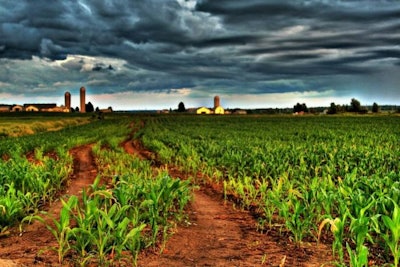
The phrase “sustainable agriculture” is a relatively new term that’s being more and more commonly used by the general public.
But that phrase is also a misnomer, says Jack Bobo, CEO of Futurity, who spoke on May 11 at the Animal Agriculture Alliance Stakeholders Summit in Kansas City, Missouri.
Usually people involved in production agriculture think of sustainability as more efficiently producing more food through innovation. And by that definition, farmers and ranchers had sustainability on their minds for a long time.
“There’s no such thing as sustainable agriculture, it’s just more sustainable. If we’re doing better this year than we did last year, we’re just on the right journey,” said Bobo. “Farmers and ranchers have been on this journey for more than 100 years. And now the public is just catching up to the importance.”
Critics of agriculture don’t necessarily like the ideas of innovation. But Bobo said embracing innovations is “really about choices and consequences.”
“We really need to find ways to explain these consequences so we can have a better conversation,” Bobo said.
As an example of the value of innovation toward sustainability and environmental factors, Bobo said that through innovation, the greater agriculture industry has helped slow global deforestation, despite being widely criticized for being a cause of deforestation.
“If you look at agriculture since 1960, the amount of land has grown, but not a lot compared to thee amount of improvements and growth of production. We produce a lot more food than we did in 1960 on pretty much the same amount of land,” he said.
“There are about 3 billion hectares of forest on the planet today, and if we were farming today the way we did in 1960, we would need 1 billion of those hectares to meet the current demand for food. Think about it, more than a quarter of all the forest on the planet only exists because of innovation and improvement in management practices.”
But Bobo said that is something that is difficult for critics to understand.
“Nobody can identify the forests that didn’t get cut down. (People) only look at the ones that did,” Bobo said. “It's hard to wrap our minds around the fact that while world agriculture may be the biggest driver of deforestation, it’s also the greatest savior of forests. We need more of the innovation, not less, in order to get us where we need to be.”


















